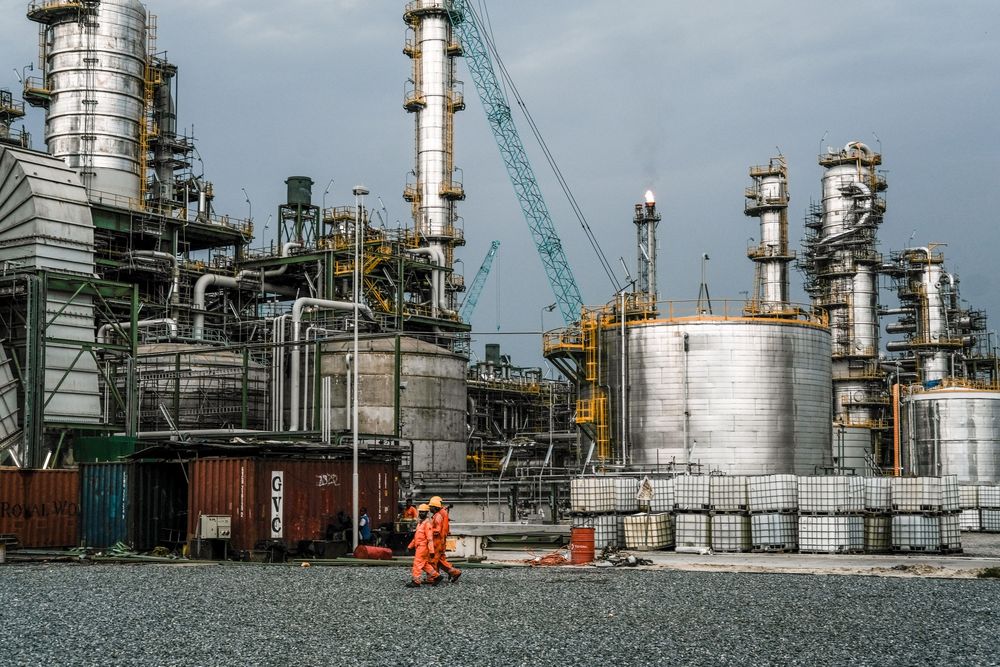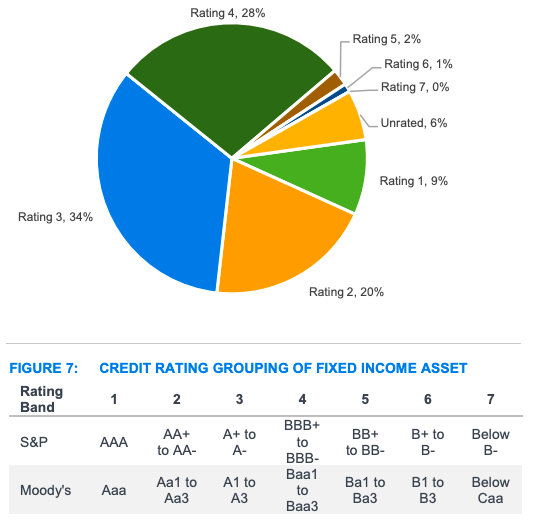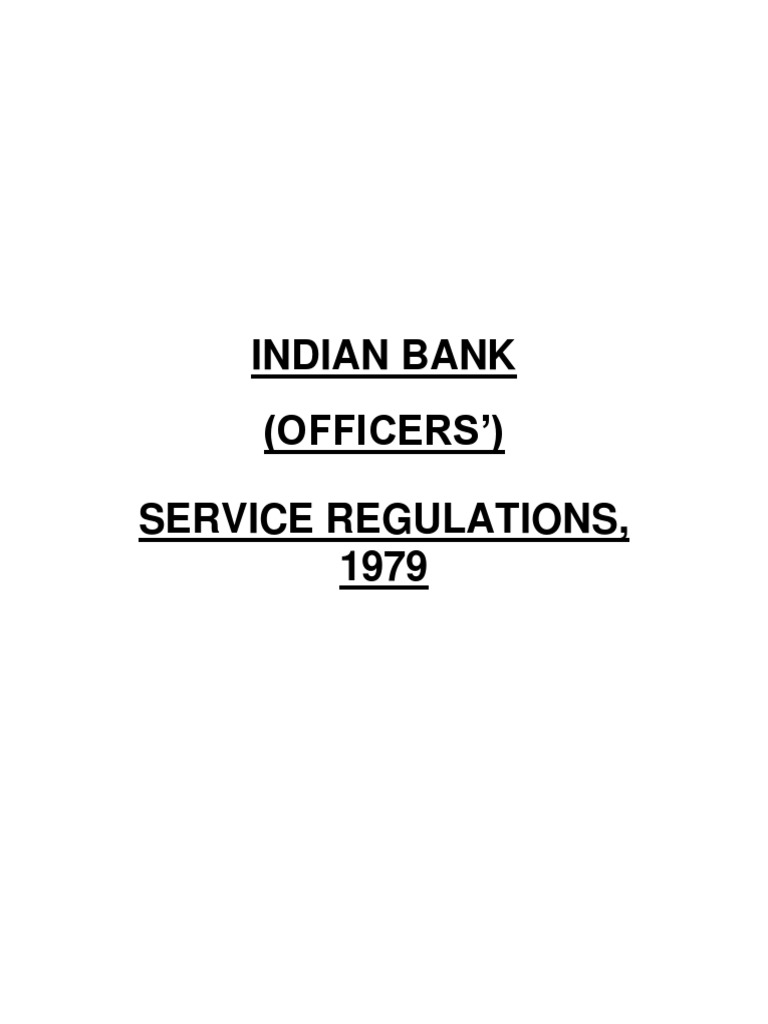Dangote Refinery's Influence On NNPC Petrol Pricing

Table of Contents
Increased Domestic Refining Capacity and Reduced Reliance on Imports
Nigeria's current reliance on imported refined petroleum products is a significant drain on its foreign exchange reserves. The country spends billions annually importing gasoline, diesel, and kerosene, leaving it vulnerable to global price fluctuations and supply chain disruptions. The Dangote Refinery, with its projected capacity to refine 650,000 barrels of crude oil per day, represents a game-changer. This massive increase in domestic refining capacity will dramatically reduce Nigeria's dependence on imports.
- Projected increase in refining capacity: The refinery's output will significantly increase Nigeria's refining capacity, potentially surpassing current national demand.
- Reduction in foreign exchange expenditure on fuel imports: Less reliance on imports translates to substantial savings in foreign exchange, strengthening the Naira and improving the nation's balance of payments.
- Impact on the balance of payments: A positive shift in the balance of payments is expected, leading to improved macroeconomic stability.
- Potential job creation in the downstream sector: The refinery's operation will create thousands of direct and indirect jobs, stimulating economic growth in the downstream petroleum sector.
Impact on NNPC's Market Dominance and Pricing Power
The NNPC has historically held a dominant position in Nigeria's petrol market, influencing petrol pricing significantly. The entry of the Dangote Refinery, a major competitor with substantial refining capacity, will disrupt this established dynamic. This increased competition will likely challenge the NNPC's pricing power, introducing a more market-driven approach to petrol pricing.
- Increased competition in the refined petroleum products market: The Dangote Refinery will introduce much-needed competition, breaking NNPC's near-monopoly.
- Potential downward pressure on petrol prices due to competition: Competition usually leads to lower prices for consumers as companies strive for market share.
- NNPC's potential responses to increased competition: The NNPC may respond by improving its operational efficiency, investing in new technologies, and potentially adjusting its pricing strategies to remain competitive.
Potential for Lower Petrol Prices for Consumers
The most significant anticipated impact of the Dangote Refinery is the potential for lower petrol prices for Nigerian consumers. Reduced reliance on imports, coupled with increased competition, could translate into significantly lower prices at the pump. This would have a cascading effect across the economy.
- Impact on transportation costs: Lower petrol prices will directly reduce transportation costs for individuals and businesses, impacting the cost of goods and services.
- Effect on the cost of goods and services: Lower fuel costs can lead to a decrease in the price of various goods and services, increasing consumer affordability.
- Potential increase in consumer purchasing power: Lower prices for essential goods like fuel will boost consumer purchasing power, stimulating economic activity.
Challenges and Uncertainties
While the Dangote Refinery holds immense promise, several challenges and uncertainties need to be considered:
- The refinery's operational efficiency: Maintaining consistent and efficient operations at such a large scale will be crucial for realizing the projected benefits.
- The potential impact of government regulations and policies (e.g., fuel subsidies): Government policies, particularly regarding fuel subsidies, can significantly influence petrol pricing.
- The role of international oil prices: Global oil price fluctuations will continue to influence petrol prices in Nigeria, even with increased domestic refining capacity.
- Possible logistical challenges in distribution: Efficient distribution of refined products across the country will be essential to ensure widespread benefits.
Conclusion: The Dangote Refinery's Long-Term Influence on NNPC Petrol Pricing
The Dangote Refinery's commissioning marks a pivotal moment for Nigeria's petroleum sector. Its potential to significantly increase domestic refining capacity, reduce reliance on imports, and introduce robust competition is undeniable. This increased competition will likely exert downward pressure on NNPC petrol pricing, potentially leading to lower prices for consumers and a more efficient market. However, challenges related to operational efficiency, government policies, and global oil prices must be carefully managed. It is crucial to closely monitor the refinery's operations and their impact on NNPC petrol pricing and the Nigerian economy as a whole. Stay informed about developments in the Nigerian petroleum sector and the ongoing effects of the Dangote Refinery on NNPC petrol pricing and the broader economy. Further research into the economics of petroleum refining in Nigeria and the impact of deregulation would provide valuable insights.

Featured Posts
-
 Nottingham Hospital Data Breach Over 90 Nhs Staff Accessed Victim Records
May 09, 2025
Nottingham Hospital Data Breach Over 90 Nhs Staff Accessed Victim Records
May 09, 2025 -
 Wynne Evanss Go Compare Future Uncertain After Strictly Incident
May 09, 2025
Wynne Evanss Go Compare Future Uncertain After Strictly Incident
May 09, 2025 -
 Jolyon Palmers Advice For Jack Doohan Focusing Amidst Alpines Driver Changes
May 09, 2025
Jolyon Palmers Advice For Jack Doohan Focusing Amidst Alpines Driver Changes
May 09, 2025 -
 Emmerdales Amy Walsh Supports Wynne Evans After Strictly Controversy
May 09, 2025
Emmerdales Amy Walsh Supports Wynne Evans After Strictly Controversy
May 09, 2025 -
 Is Young Thugs Back Outside Album Finally Coming Soon A Look At The Rollout
May 09, 2025
Is Young Thugs Back Outside Album Finally Coming Soon A Look At The Rollout
May 09, 2025
Latest Posts
-
 Regulatory Changes Urged Indian Insurers And Bond Forward Trading
May 10, 2025
Regulatory Changes Urged Indian Insurers And Bond Forward Trading
May 10, 2025 -
 New Rules Sought Indian Insurers Target Bond Forward Market
May 10, 2025
New Rules Sought Indian Insurers Target Bond Forward Market
May 10, 2025 -
 Indian Insurers Advocate For Simplified Bond Forward Regulations
May 10, 2025
Indian Insurers Advocate For Simplified Bond Forward Regulations
May 10, 2025 -
 Bof As Reassurance Are Stretched Stock Market Valuations A Cause For Concern
May 10, 2025
Bof As Reassurance Are Stretched Stock Market Valuations A Cause For Concern
May 10, 2025 -
 Indian Insurers Seek Regulatory Easing For Bond Forwards
May 10, 2025
Indian Insurers Seek Regulatory Easing For Bond Forwards
May 10, 2025
